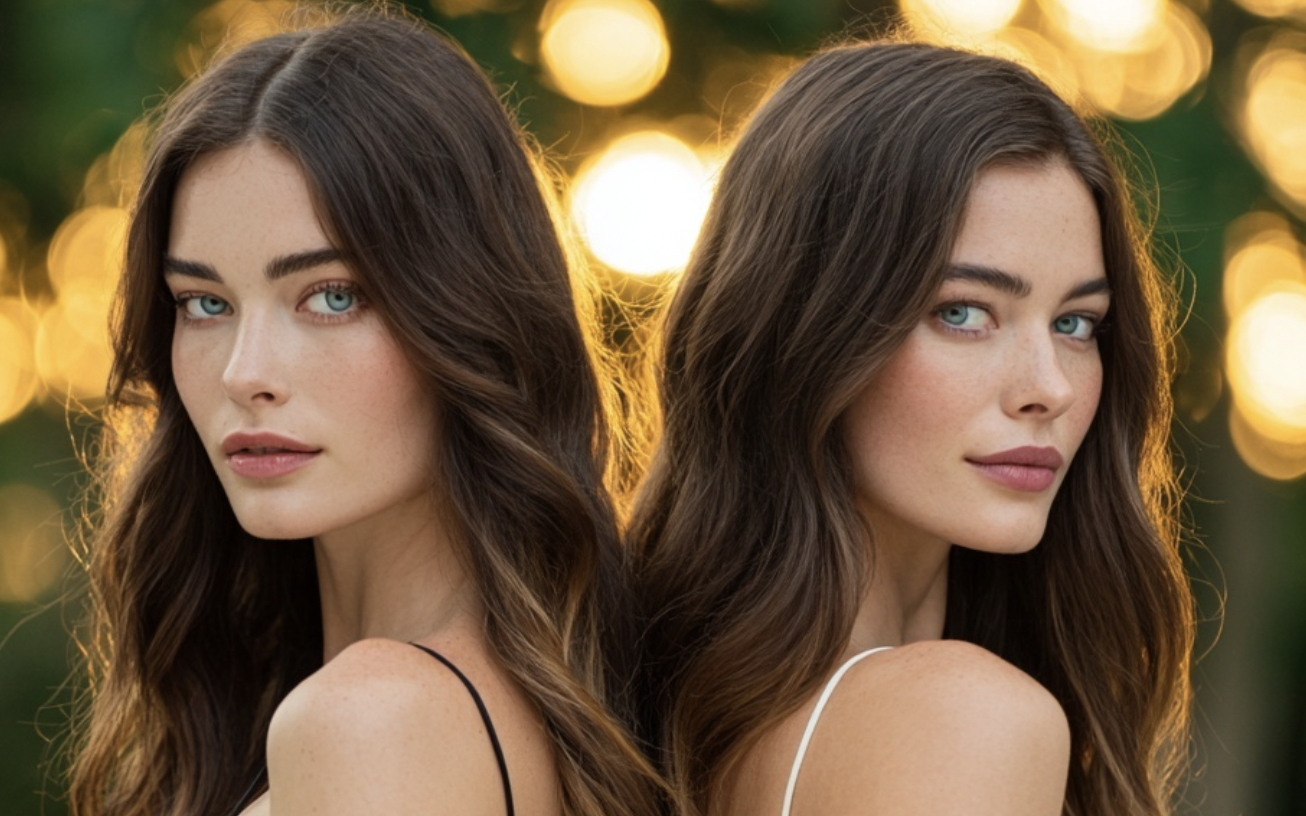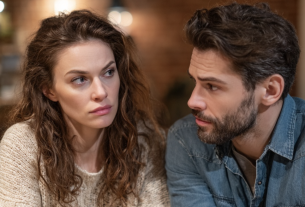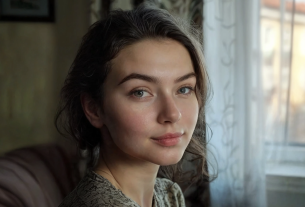Artyom, my husband, warned me almost a month in advance about the upcoming anniversary of his most respected colleague. The celebration was scheduled for Saturday, in the luxurious banquet hall of “Eden,” the most pretentious restaurant in the city. For the world of big finance and champagne toasts, it was just another event, but for me—it was cause for quiet panic.
“Oh God, it’s already Thursday!” I whispered in despair, staring once again into my wardrobe. “And I haven’t even started looking for a dress yet!”
After the birth of our son Stepan, my body had changed imperceptibly, but irreversibly. The dresses I once loved, which used to fit perfectly, now either refused to zip up or openly displayed the wrong size. That closet wasn’t just filled with clothes—it was a museum of my former, carefree life, which I now looked upon with a touch of sadness.
As always, my savior was Mom. I called her, and within fifteen minutes she was at my door, slightly flushed from brisk walking. We lived in the same building, just in different entrances, and that closeness was our shared blessing.
“Go, daughter, and find your happiness,” she smiled, taking sleepy Stepa from my arms. “We’ll have a wonderful time together, just the two of us.”
And so I set out on my search. Not for a dress—for myself.
The shopping mall greeted me with the hollow echo of strangers’ footsteps and relentlessly cheerful music. Choosing an outfit had always felt like a survival quest. Every fitting was an inner dialogue filled with doubt and self-criticism: “Does this color age me?” “Does this style make me look bigger?” “Do I look like I’m trying too hard?” Once, Artyom had agreed to help me pick out a winter coat, and after that three-hour marathon he came home with a vacant stare and swore an oath: “Never. Do you hear me? Never again!”
The third boutique I entered felt cozy and promising. The air smelled of expensive perfume and silk. A sweet-looking sales assistant with a perfect smile and strikingly kind eyes greeted me, making me feel lighter for a moment.
“Your sister is already trying on our collection in that fitting room, to the left,” she said, nodding toward the back. “She’s gone through almost everything we have, but nothing suits her. Maybe you can help her decide?”
The world froze. Absolute silence rang in my ears, drowning out the music.
“Excuse me? What sister?” My voice sounded muffled and unnatural. “I don’t have a sister.”
The salesgirl faltered, her perfect smile trembling. She glanced from me to the fitting room door, which at that very moment creaked open. I turned, obeying some primal instinct.
And froze.
Out stepped… me. Not metaphorically. Not “a woman who looked like me.” It was me. The same slightly slanted gray eyes. The same mole by the left eyebrow. The same dimples when smiling. The same lips. We stared at each other—two paintings by the same brushstroke. Two drops of water, two grains from the same shell. Identical chestnut waves of hair, identical figures, even dressed the same—ripped jeans and plain white T-shirts.
Speech abandoned us both. We were two shores of one river, suddenly shifted and colliding. The salesgirl stood frozen, realizing she was witnessing something beyond reality.
She was the first to recover.
“Who… are you?” she asked. Her voice—it was my voice. The same timbre, the same intonation.
“I’m Veronika,” I whispered, feeling my knees weaken. “And you?”
“I… Marina. But everyone close calls me Rina.”
She stepped toward me, and I instinctively stepped back. It was too much.
“We need to talk. Let’s go somewhere?” she suggested, and in her eyes I saw the same raw need to understand that burned within me.
We left the boutique, abandoning the stunned salesgirl, and headed to a small café across the street. Two identical women walking in unison, drawing a storm of bewildered and frightened glances.
We sat by the window. The coffee cooled, untouched. She studied me, memorizing every detail of my face, and I did the same. It was eerie and mesmerizing.
“So… you’re alive,” Rina finally said, her voice trembling. “My mother and grandmother always believed you hadn’t survived. Maybe that made it easier for them. Just… to comfort themselves.”
She drew a deep breath, gathering the strength to speak words that would turn our worlds upside down.
“Our biological mother gave birth to us in a small maternity hospital in the town of Taezhny, on October fourth, 1993. Is that… your date?”
I only nodded, unable to speak past the lump in my throat. October fourth. Yes.
“I was born first,” Rina continued, nervously twisting a napkin. “I was bigger, stronger. You… you were so tiny. Like a little bird. Your breathing was barely there. They put you in intensive care for the weakest babies. And before discharge… our mother signed official papers. She gave you up.”
She fell silent, staring into her cup as if searching for ghosts in the dark liquid.
“The nineties. In Taezhny the logging plant had collapsed. No jobs, no money. Our father was never around. She was left alone with two newborns, and one of them was fighting for life… The choice was monstrous. I was mostly raised by Grandma. Mom… couldn’t cope. She drank herself to death. She was gone when I was ten.”
I listened, shivers racing down my skin. I was living another life—her life.
“Then Grandma passed away too. Seven years ago. I was completely alone,” her voice dropped to a whisper. “I survived however I could. Odd jobs, selling pies at the train station… One winter, after I’d made a sale, some homeless men ‘thanked’ me with drink. I blacked out. Walking home through the forest… I didn’t make it. I fell asleep in the snow. A tractor driver found me. It was a miracle I lived.”
We cried. Silently. Just looking at each other and crying over broken lives, over pain we had carried for years, not knowing it belonged to both of us.
Later, we went to my place. The elevator crept upward painfully slowly. Mom opened the door, her face first lighting up with its usual warmth, then shifting to shock, confusion, and fear. She stared at two daughters standing at her doorstep.
And then she told us everything. The truth she and Dad had hidden all these years.
“Veronichka, my dear… Yes, we took you from the orphanage. We couldn’t have children… You were such a tiny, sad little bundle… We loved you at first sight!” she sobbed, hugging me. “We… we didn’t know. I swear we didn’t know you had a sister! The documents said nothing! We thought… we thought you’d never find out. That we weren’t your blood. Forgive us!”
I embraced her, my mother—my one, true mother, smelling of familiar perfume and home.
“Mom, don’t… You’re the dearest one. You are my mother. And you always will be. This changes nothing. Nothing!” I kissed her tear-streaked cheeks again and again, swearing it.
The evening turned into a strange, surreal, endlessly touching confession. Rina and I talked nonstop. We discovered we had both graduated from philology faculties, just in different cities. She was a literature teacher, married to a math teacher. They had no children. I, on the other hand, had studied journalism, married Artyom, and had Stepa.
We found out we both hated cilantro, loved old black-and-white films, and shared the same habit of tugging at our earlobes when nervous. Our laughter was identical—bright, from the depths of the soul.
“Tell me, did you…” I hesitated, fearing to jinx another bizarre coincidence. “Did your tooth ache last Saturday, by any chance?”
Rina threw up her hands, eyes wide in amazement.
“It did! Terribly! I barely made it to Monday to see the dentist. It was pulpitis!”
And last Saturday, for no reason at all, one of my perfectly healthy teeth had started aching. My dentist shrugged: “Stress. Nerves.”
Little Stepan, waking up, stared in confusion from me to Rina. Then he hugged my leg, pointed at her, and said with certainty: “Second mama.” Children feel the truth with their skin.
The climax of the day was Artyom’s return. He walked in, tired, tossed his keys onto the stand, and looked up. His face ran through a spectrum of emotions—fatigue, confusion, shock, disbelief. He stared at us both, his rational world crumbling.
When we finally explained, stumbling over each other’s words, he was silent for a long time. Then, trying to defuse the tension with humor, he muttered:
“Good God… Just don’t let me mix you up. Imagine—I give flowers to my wife, and she’s not my wife.”
That evening he drove Rina to the station. On the platform, we stood together—two halves of one whole, finally reunited. We hugged so tightly, afraid this was just a dream that would vanish.
“Will we see each other soon?” I asked, tears rising again.
“Of course. Very soon. With our husbands too,” she smiled. And her smile was my smile.
She boarded the train, and we waved until the lights disappeared into the night. I knew—it was forever. The abyss of loneliness I had never recognized, yet always felt, was filled. Filled with a voice identical to mine, with laughter, with pain, with joy—my mirror reflection.
And yes—such things, such breathtaking miracles, do happen in life. Sometimes you just have to step into the third fitting room—not to find a dress. But to find yourself. Another self. And the real one.



